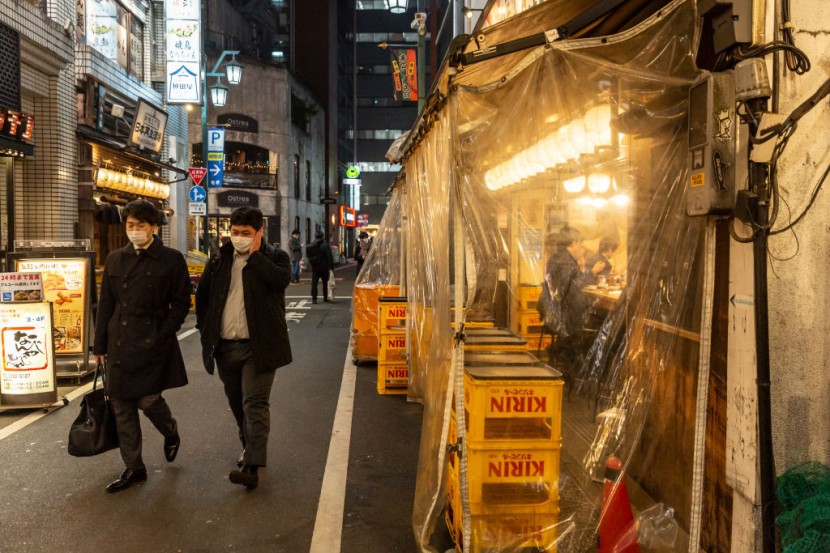
Japan widens its COVID-19 restrictions on Friday due to the surge of COVID-19 infections, especially in metropolitan areas, brought by the highly transmissible Omicron variant, prompting restaurants and bars to close early.
The restriction, as per NPR, is scheduled to take place until February 13, and it will cover 15 areas of the country. Most restaurants must close by 8 or 9 p.m. under the new rule. However, major gatherings observing anti-COVID-19 protocols will be allowed to be conducted in full capacity.
Tokyo-certified restaurants that stop serving alcoholic beverages are permitted to stay open until 9 p.m., while those offering alcohol, on the other hand, must close an hour sooner.
The Japanese government offers compensation of 30,000 yen ($263) per day to restaurants that close at 9 p.m. The ones that close at 8 p.m. can get 25,000 yen ($220) per day.
Japan Impose Restrictions Instead of Lockdown
Japan has resisted the imposition of lockdowns in managing the outbreak of COVID-19. The country has focused on policies that require restaurants to shorten their business hours and limit the offering of alcoholic beverages.
The government also urged the public to wear masks and practice social distancing as economic activities continue to minimize the impact of the pandemic on the economy.
However, the government's measures make little sense and are unfair for critics as they focus more on bars and restaurants.
Among them is Mitsuru Saga, who manages a restaurant in downtown Tokyo. He claims that he decided to serve alcohol and close at 8 p.m. though he receives less compensation from the government.
"We cannot make a business without serving alcohol," Saga said.
On Thursday, Tokyo logged 8,638 new cases of COVID-19 infection. It had exceeded the previous record of 7,377 cases registered the day before. The fast-rising numbers alarmed Tokyo officials.
Norio Ohmagari, Director of the Disease Control and Prevention Center of National Center for Global Health, predicted that the daily cases in Tokyo might even go beyond 18,000 in the span of one week if the numbers continue to rise at the current pace.
While many Japanese adults are fully vaccinated against COVID-19, only a small percentage have received a booster dose, which improves protection against the highly transmissible Omicron variant.
Read Also : COVID-19 Around the World: How Different Countries Are Dealing With Omicron Surge in January 2022
Daily COVID-19 cases surge in Japan
According to Cabinet official Makoto Shimoaraiso, who is involved in Japan's COVID-19 crisis management, the vaccine rollout in the country was hampered by delays in regulatory approvals and reopening of inoculation sites.
In 2021, the national vaccination program started slowly before hitting 1.7 million doses per day. The Cabinet official noted that "the same rapid increase" was also seen with booster shots, as per Reuters.
He added that the government also urged the people to refrain from risky behaviors instead of restricting activities.
On Friday, officials said that the hospital bed occupancy rate for COVID-19 patients surged to 31.5%, which is an increase to 50% that may lead to calls for a full state of emergency.
Japan has recorded just over 2 million infections and 18,461 deaths during the pandemic in almost two years.
Despite the rising number of infected individuals, Japan calls to treat COVID-19 as endemic like flu. The death rate remains low, vaccines are available, and many people are already tired of restrictions, as per Al Jazeera.
Prominent personalities, including former Prime Minister Shinzo Abe, have expressed their support for the downgrading of the COVID-19 virus, which is believed to boost access to health care for patients. But medical experts from the WHO warned that it's too early and too risky to make drastic changes in dealing with the pandemic.
Related Article: Hamster Owners Do Not Want the Hong Kong Government To Cull Their Pets in Fear of COVID-19 Infection
© 2026 HNGN, All rights reserved. Do not reproduce without permission.








